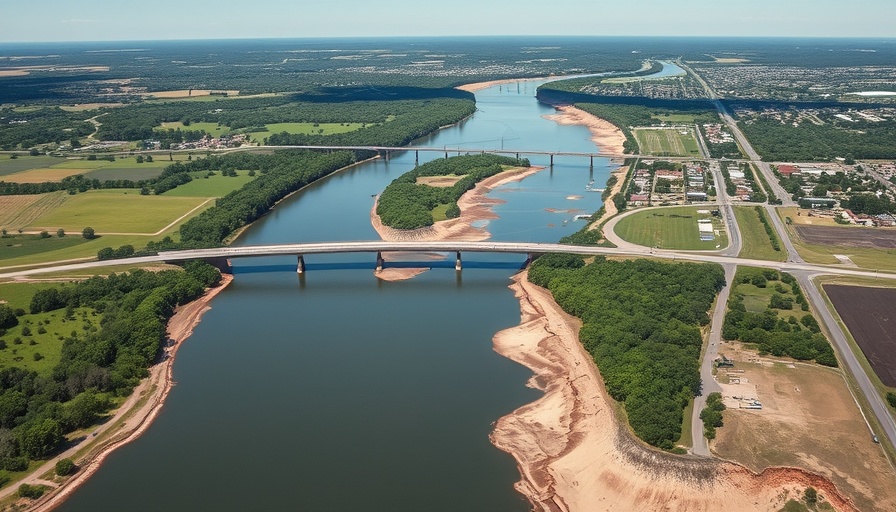
A Devastating Flood: The Impact on Texas Communities
On July 4, 2025, Texas experienced catastrophic flooding, resulting in the loss of at least 132 lives and leaving many more missing. As communities along the Guadalupe River grapple with the aftermath, emergency crews have tirelessly worked to locate victims and assist those in distress. The recent pause in search operations due to severe weather highlights the challenges faced during this crisis.
Search Efforts Resumed Amid Ongoing Risks
Crews are poised to resume their search for flood victims starting Monday. This decision follows a temporary halt that allowed for new rescues due to fresh flooding concerns. Although some areas within Kerr County have already resumed search missions, the uncertainty from the rain and risks of rising waters loom large. Authorities have voiced concerns that more than 160 individuals remain unaccounted for in just this one county, along with 10 missing elsewhere.
Community Response and Preparedness: Lessons to Learn
The scrutiny directed at local officials regarding their emergency response highlights the need for improved communication and preparedness in future weather events. In Kerrville, residents reported mixed experiences concerning flood warnings received. Some officials attended homes after midnight, alerting residents of impending flooding, while others felt unprepared for the disaster.
Enhancing local warning systems and ensuring timely communication can make a difference between life and death in such critical situations. Awareness campaigns and regular drills can better equip communities to respond to flooding risks, minimizing chaos in emergencies.
The Emotional Toll: Reflections from the Community
The impact of these floods extends far beyond mere statistics. Families mourn the loss of their loved ones, and communities struggle with the destruction of homes and infrastructure. Residents of affected regions have expressed overwhelming grief as they sort through what remains of their properties.
As communities band together to offer support, the importance of emotional resilience becomes clear. Local organizations, support groups, and mental health professionals play crucial roles in helping individuals process their grief and begin the healing journey.
Looking Ahead: Future Preparedness Strategies
As experts analyze the recent flooding and its aftermath, they stress the importance of implementing long-term preventative strategies. These may include enhancing drainage systems, reinforcing local levees, and developing comprehensive flood management plans. Engaging in community-wide discussions about risk factors can pave the way for innovative solutions.
Moreover, educating the public about climate change’s role in such extreme weather events is essential. By raising awareness, communities can work together to harness resources and develop proactive responses to future flooding.
Staying Informed: Resources for Residents
As search efforts continue and local authorities focus on recovery, it is essential for residents to stay informed. Through social media updates, local news channels, and official government communications, information about ongoing rescue operations and safety measures can be widely disseminated.
Furthermore, residents are encouraged to remain engaged with local disaster preparedness workshops and initiatives that promote safe community practices during floods. Active participation can cultivate a culture of awareness and readiness among all community members.
Conclusion: A Call to Action for Community Engagement
The tragic flooding event in Texas serves as a sobering reminder of the power of nature and the resilience of communities. As rescue efforts persist, it is vital for individuals to support one another and take proactive steps to enhance flood preparedness. Together, as a community, proactive engagement can lead to a safer future, mitigating the impacts of not just floods, but a variety of natural disasters.
As residents of Texas and beyond look to the future, let us remember: awareness, preparation, and collaboration can save lives. Consider getting involved in local initiatives aimed at disaster preparedness, and stay informed about how to best support your community in the wake of crises.
 Add Element
Add Element  Add Row
Add Row 



 Add Row
Add Row  Add
Add 


Write A Comment